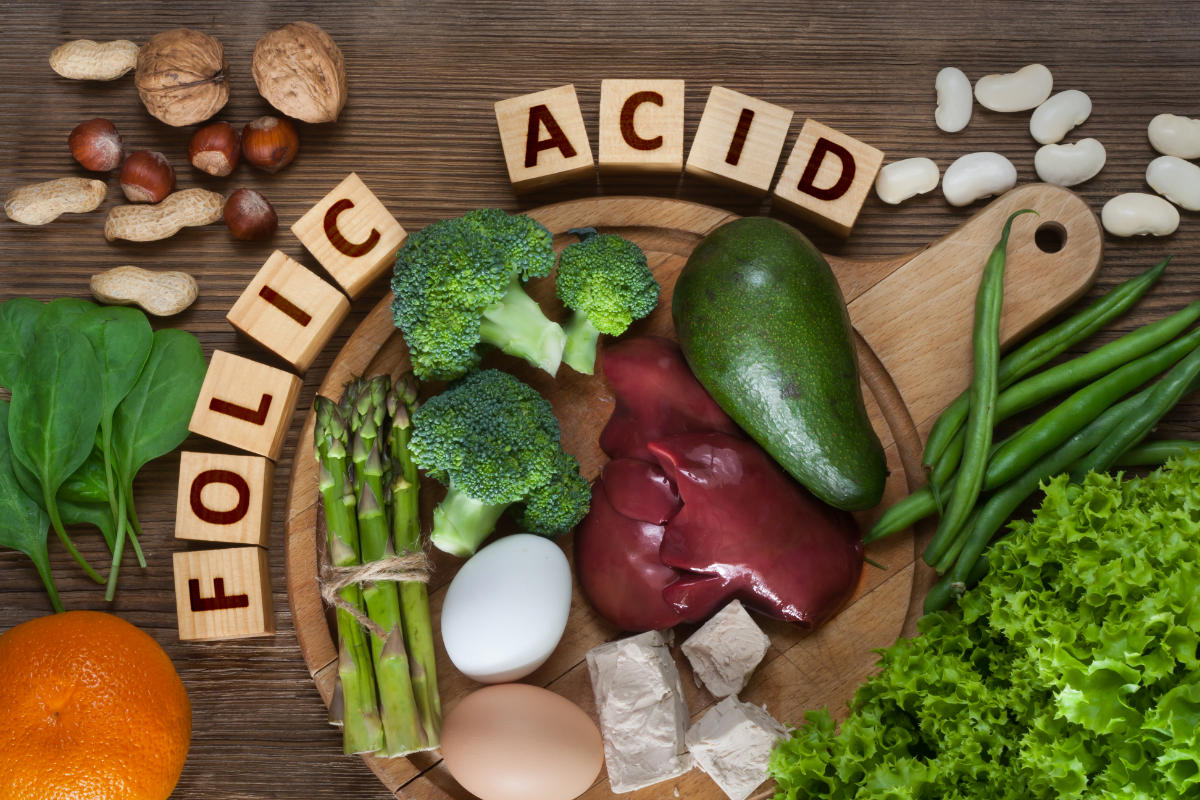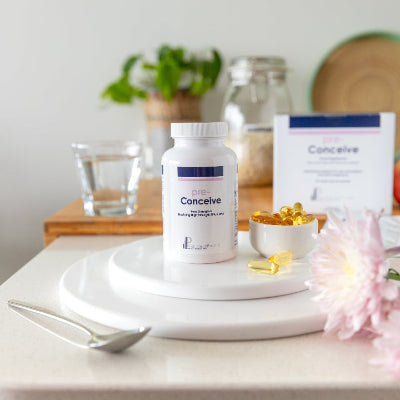Folate is often hailed as one of the most critical nutrients for pregnancy, with for good reason. It plays a crucial role in foetal development, reduces the risk of birth defects, and supports overall maternal health. In this article, we will outline why folate is essential, how much you need, and the best ways to get it.
What Is Folate, and Why Does It Matter?
Folate is a B vitamin (B9) naturally found in food, while folic acid is its synthetic counterpart used in supplements and fortified foods. Both forms are essential for DNA synthesis, cell growth, and tissue repair, all vital processes during early pregnancy when the baby’s neural tube is forming.
Adequate folate intake helps prevent neural tube defects (NTDs), such as spina bifida and anencephaly, which occur within the first 3-4 weeks of pregnancy, often before a person even knows they’re pregnant.
How Much Folate Do You Need?
For those trying to conceive and during pregnancy, the general recommendation is:
- 400-600 micrograms (mcg) of folic acid daily for most individuals
- Higher doses (e.g., 800-1000 mcg) may be recommended for those with a history of NTDs, certain genetic conditions, or specific health needs - always consult a healthcare provider.
Since the neural tube forms so early, it’s ideal to start taking folate supplements at least one month (ideally three) before trying to conceive, ideally three. More information can be found, here.
Folate-Rich Foods
While supplements are important, getting folate from food sources is also key. Some top folate-rich foods include:
- Leafy greens: Spinach, kale, and romaine lettuce
- Legumes: Lentils, chickpeas, and black beans
- Citrus fruits: Oranges, grapefruit, and strawberries
- Avocados: Packed with folate and healthy fats
- Eggs: A versatile source of essential nutrients
- Wholegrains: Wholegrain carbohydrates are a rich source of folate
Folate vs. Folic Acid — What’s the Difference?
Folate from food is naturally occurring and bioavailable, but folic acid (from supplements and fortified foods) is more easily absorbed by the body. Some individuals have a genetic variation (MTHFR mutation) that makes it harder to convert folic acid into its active form — in such cases, methylated folate supplements are a better option.
Why pre-Conceive Is the Perfect Prenatal and Fertility Support Supplement
Choosing the right prenatal supplement can feel overwhelming, but pre-Conceive stands out as an ideal choice for those preparing for pregnancy. It combines bioavailable methylated folate, essential for individuals with MTHFR gene variations, with a carefully balanced mix of vitamins, minerals, and antioxidants that support egg quality, hormone balance, and overall reproductive health. Designed to nourish both body and baby from preconception through early pregnancy, pre-Conceive takes the guesswork out of fertility nutrition, making it a trusted, comprehensive option.
Final Thoughts
Folate is a non-negotiable nutrient when preparing for pregnancy and supporting early foetal development. A combination of a balanced, folate-rich diet and a high-quality prenatal vitamin helps ensure you’re getting the right amount. For more information on Folate and potential deficiencies, please visit this link to the Cleveland Clinic.






